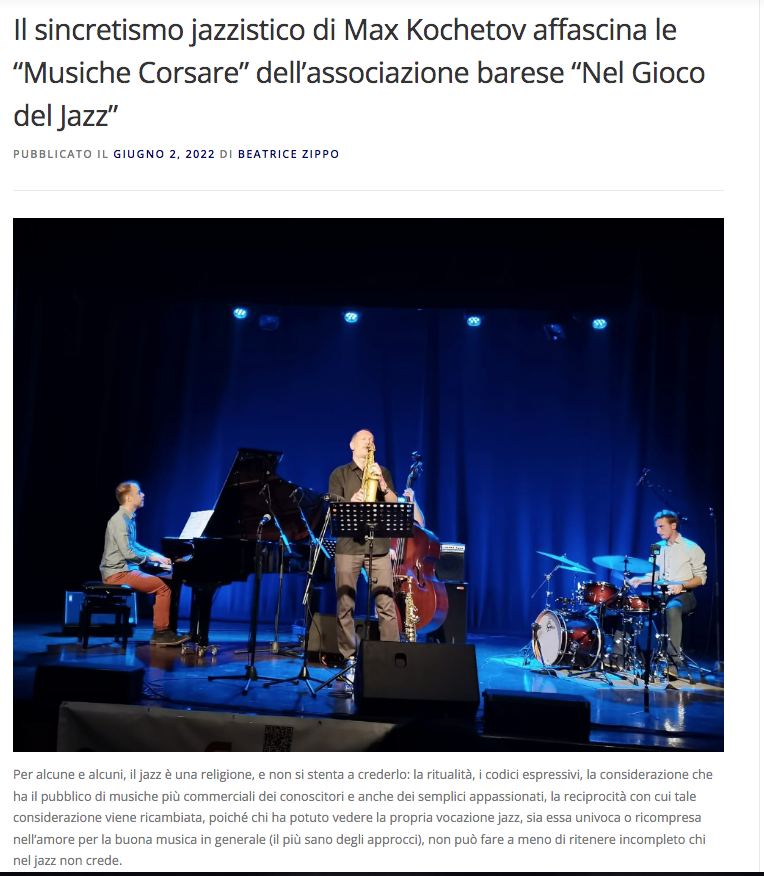Max Kochetov's jazz syncretism fascinates the "Corsare Music" of the Bari association "Nel Gioco del Jazz"
For some and some, jazz is a religion, and it is easy to believe it: the rituality, the expressive codes, the consideration that the public has of more commercial music than connoisseurs and even simple enthusiasts, the reciprocity with which this consideration is reciprocated, since those who have been able to see their own jazz vocation, be it univocal or included in the love for good music in general (the healthiest of approaches), cannot help but consider incomplete those who do not believe in jazz.
In this ecumene, Max Kochetov ranks. Ukrainian-born Serbian saxophonist, takes the stage together with a trio of Serbian musicians: Andreja Hristic on the piano, Milos Colovic on the double bass and Milos Grbatinic on the drums. The concert is set as a pure gem in the second weekend of the "Musiche Corsare" festival, the review dedicated to Pier Paolo Pasolini, organized by the Bari-based association "Nel Gioco del Jazz", with the Presidency of Donato Romito and the artistic direction of Maestro Roberto Ottaviano and Maestro Pietro Laera.
The program includes the performance of the eight-part suite "Altered Feelings", the disc of which is produced by Ama Records. Kochetov's jazz can be fully defined as syncretic, since, if the result is that of a very modern, practically universal sound, it rests on an executive rigor that leaves little room for frills: an essential quartet, not at all gaunt, which he fields, refines and borders the music he plays, mastering even sudden changes in atmospheres and temperatures.
All musicians are capable of beautiful solos, in which no concession is made to complacency: from the title track of the disc and all the other compositions proposed, Kochetov brings out explicit and very elegant phrases, enhancing the skill of his band fellows. My favorite, poetic, with a flavor that embraces all of central Europe, up to gently knocking on the doors of our North East, is “Waltz”. It is not the only concession to jazz balladry offered by the quartet, which takes the stage and returns all a power made of stateless, pirate notes, as the festival itself is, with good reason, entitled
